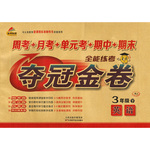题目内容
I was waiting for a phone call from my agent. He had left at message the night before, telling me that my show was to be cancelled. I called him several times, but each time his secretary told me that he was in a meeting and that he would call me later. So I waited and waited, but there was still no call. Three hours passing by, I became more and more and impatient. I was certain that my agent didn’t care about my work, and he didn’t care about me. I was overcome with that thought. I started to shout at the phone, “Let me wait, will you? Who do you think you are?”
At that time I didn’t realize my wife was looking on. Without showing her surprise, she rushed in, seized the phone, tore off the wires, and shouted at the phone, “Yeah! Who do you think you are? Bad telephone! Bad telephone!” And she swept it into the wastebasket.
I stood watching her, speechless. What on earth...?
She stepped to the doorway and shouted at the test of the house, “Now hear this! All objects in this room----if you do anything to upset my husband, out you go!”
Then she turned to me. Kissed me and said calmly, “Honey, you just have to learn how to take control.” With that, she left the room.
After watching a crazy woman rushing in and out, shouting at everything in sight , I noticed that something in my mood (情绪) had changed. I was laughing. How could I have trouble with that phone? Her anties helped me realize I had been driven crazy by small things. Twenty minutes later my agent did call. I was able to listen to him and talk to him and talk to him calmly.
1.Why did the author shout at the telephone?
A. He was mad at the telephone.
B. He was angry with his agent.
C. He was anxious about his wife.
D. He was impatient with the secretary?
2.What did the author’s wife do after she heard his shouting?
A. She said nothing.
B. She shouted at him.
C. She called the agent.
D. She threw the phone away.
3.What made the author laugh?
A. His own behavior
B. His wife’s suggestion
C. His changeable feelings.
D. His wife’s sweet kiss.
4.What does the underlined word “anties” refer to?”
A. Smut words
B. Unusual actions.
C. Surprising Looks
D. Anxious feelings.
1.B。
【解析】细节理解题。由第一段中的So I waited and waited, but there was still no call. Three hours passing by, I became more and more and impatient. I was certain that my agent didn’t care about my work, and he didn’t care about me. I was overcome with that thought.可以知道答案。
2.D。
【解析】细节理解题。第二段最后一句:And she swept it into the wastebasket.
3.A。
【解析】细节理解提由最后一段中的:I noticed that something in my mood (情绪) had changed. I was laughing.可以知道答案。
4.B。
【解析】推断题。根据前后文可以知道“anties”指的是Unusual actions

 夺冠金卷全能练考系列答案
夺冠金卷全能练考系列答案Jane raced onto the train platform and asked a porter, “Is this the train to Rochester?”
“Yes,” said the porter. “but only the …Hey! Wait.” He was too 21 .Jane had raced off
22 he had finished speaking.
She had just 23 herself in a seat when the train 24 out of the station. Jane got out her book and settled down to read. After about an hour or so, she looked 25 and glanced out of the window. “That’s 26 .” she thought . “the landscape(景色)doesn’t look 27 ,and it should; I’ve 28 this route so many times.” She was getting increasing 29 when the big, red-faced conductor walked up and asked for her 30 .
One glance was enough. He 31 his head in friendly reproach(责备) and said, “Now, young lady, what did you do a fool thing like that for? This is the 32 ticket. You 33 have sat at the back of the train. The Rochester-bound(开往) section was 34 at the last station.
Jane’s face grew red. “I’m sorry,” she said, “I guess I was in too much of a 35 to find out…” “Well,” said the conductor, “don’t `36 . You shouldn’t have been in such a hurry, but I dare say we can 37 you a train going in the right 38 at Syracuse. You’ll be a couple of hours late 39 ,though .”
When Jane finally stepped onto the Rochester platform, her mother 40 up to her . “Oh, Jane, we have been so worried. What on earth happened?”
“Well, Mom,” said Jane, “it’s a long story.”
1.A. busy B. early C. late D. quick
2.A. when B. then C. after D. before
3.A. settled B. took C. made D. gave
4.A. pushed B. pulled C. left D. started
5.A. around B. about C. up D. down
6.A. exciting B. interesting C. strange D. right
7.A. familiar B. beautiful C. nice D. alike
8.A. walked B. gone C. followed D. traveled
9.A. uneasy B. calm C. angry D. unhappy
10.A. money B. ticket C. book D. name
11.A. put B. shook C. raised D. nodded
12.A. wrong B. used C. only D. right
13.A. would B. must C. should D. could
14.A. joined B. turned C. connected D. separated
15.A. hurry B. trouble C. worry D. difficulty
16.A. sorry B. worry C. hurry D. regret
17.A. make B. give C. find D. get
18.A. time B. place C. station D. direction
19.A. arriving B. leaving C. going D. returning
20.A. called B. picked C. rushed D. pushed